#pray for hajj
Explore tagged Tumblr posts
Text
Obligatory Acts Wajibaat of Hajj Complete Step by Step Hajj Guide #hajj #hajj2024 #macca #madina
#hajj #hajj2024 #macca #madinah #kabah #muslim #umrah #islam #hajjjourney #blessed #pilgrimage # #الحج #مكة #المدينة #كعبة #مسلم #عمرة #إسلام #رحلةحج #مبارك #مكرمة #مناسكالحج #مشعر #عرفة #مزدلفة #مزدلفه #مشعر_عرفة #منا #hajjvlogs #hajjguide #learnhajj #hajjtips #hajjpreparation #hajjexperience #prayforhajj #hajjrituals #hajjmubarak #hajjday #hajjaccepted #alhamdulillah #duasforhajj #makkah…
View On WordPress
#blessed#explore hajj#hajj#hajj 2024#hajj day#hajj experience#hajj guide#hajj journey#hajj mabroor#hajj moments#hajj mubarak#hajj preparation#hajj rituals#hajj tips#hajj vibes#hajj vlogs#hajjaccepted#islam#kabah#learn hajj#macca#madinah#makkah#muslim umrah#performing hajj#pilgrimage#pray for hajj#types of hajj#إسلام#الحج
0 notes
Text
مناسك الحج خطوة بخطوة How to Perform Hajj طواف الافاضة شرح خطوات أداء مناسك الحج كيف تحج وتعتمر
#مناسك #الحج #خطوة #بخطوة #Perform #Hajj #طواف #الافاضة #شرح #خطوات #أداء #مناسك #الحج #كيف #تحج #وتعتمر #hajj #hajj2024 #macca #madinah #kabah #muslim #umrah #islam #hajjjourney #blessed #pilgrimage # #الحج #مكة #المدينة #كعبة #مسلم #عمرة #إسلام #رحلةحج #مبارك #مكرمة #مناسكالحج #مشعر #عرفة #مزدلفة #مزدلفه #مشعر_عرفة #منا #hajjvlogs #hajjguide #learnhajj #hajjtips #hajjpreparation…

View On WordPress
#blessed#duas for hajj#explore hajj#hajj#hajj 2024#hajj day#hajj dua#hajj experience#hajj guide#hajj journey#hajj mabroor#hajj moments#hajj mubarak#hajj preparation#hajj rituals#hajj tips#hajj vlogs#hajjaccepted#islam#kabah#learn hajj#macca#madinah#Makkah#muslim umrah#performing hajj#pilgrimage#pray for hajj#types of hajj#إسلام
0 notes
Text
Allah knows what your silent heart wants. Even if you don’t include it in your prayers. He hears what your heart whispers. He may not give it to you now but someday, when you least expect it, things will happen in the best possible way.
#muslim#allah#islamicreminders#deen#tawakkal#muslim ummah#dawah#allahuakbar#deenoverdunya#islamification#dua#duaa#daily duaa#prayer#pray everyday#night prayer#pray for palestine#salah#hadith#hajj 2024#hajj#allah is kabir#allahﷻ#allahuekber#islamic jihad#islamic knowledge#islamicquotes#islamic#islam#islam help
97 notes
·
View notes
Text
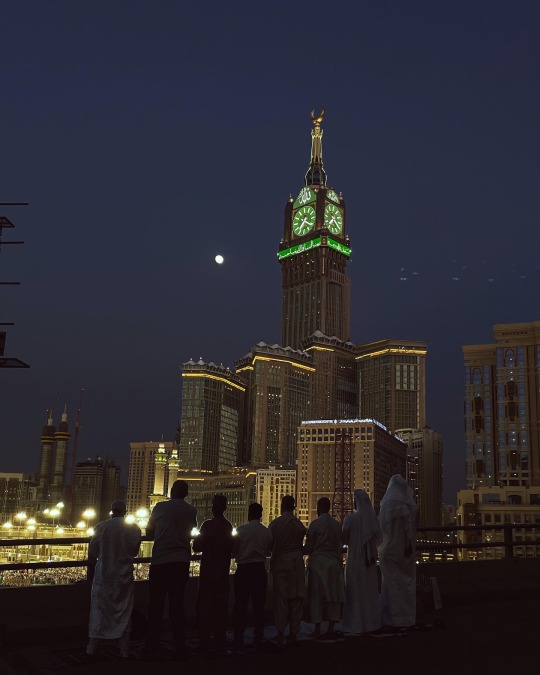
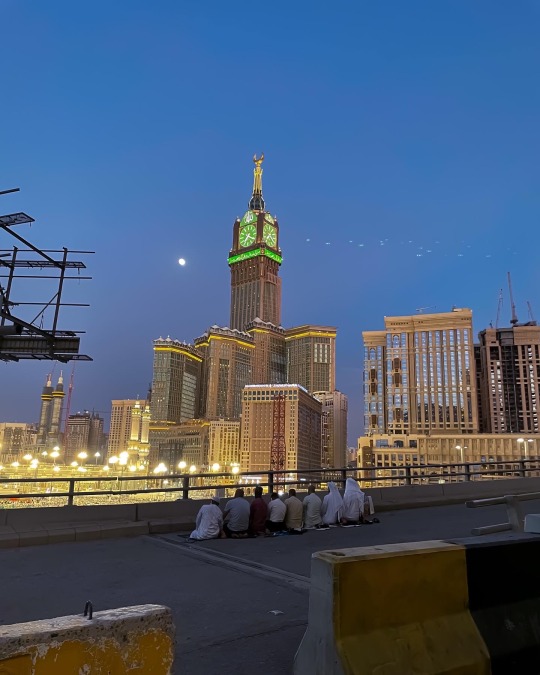
#مكة المكرمة#حج#صلاة#جماعة#سجود#ركوع#praying#prayer#pray#duaa#alla#god#religion#islam#hajj and umrah#hajj#2023
17 notes
·
View notes
Note
i was just minding my business like scrolling to find new fics to read since i was so so bored and while i was finding some delicious fics (ahem ahem: yandere big brother bakugou x little sister reader) ur post suddenly idk the word (lumitaw (its a filo word)) and i was screaming and immediately dropped what i was supposed to read to read yours 😭😭😭
i got the worst memory ever to exist because i keep forgetting their names but i think i'll grasp them once the next chapter is out (hopefully) but yeaaah!!! baris reminds me of abbas in a way but ig he's a bit more.. brute yk what im talking about????? ig he's ok..
OH! and i have a theory about the painting, y/n's face getting smudged maybe because baldwin or SALAUDDIN decided to smudged it to forget how they look due to heartbroken (prob not baldwin,, but i feel like salauddin would do that ??) i guess im getting married again 😔😔 i feel like im betraying my pookie salauddin 💔💔💔🙏🙏 BUT ANYWAYS THANK YOU FOR THE UPDATE SNOW!!!! AMAZING AS ALWAYS!! can't wait for the next one already!! 😭😭😭 i think i'll send more of my thoughts if something crosses over my mind (prob when im in the shower)
ooohh i like your theory(portrait pictures at the end). i like it a lot. expanding on it:
Baldwin would probably cause the painting to be smudged because he's kissing it, kissing your lips, drunk off his mind, tears streaming down his cheek as he spends hours sitting in front of it, talking to the painting as if u still exist, begging u to come back from heaven, even apologising for all he's done, just please- come back, angel...
Meanwhile Salauddin would probably be staring at your portrait angrily. He understands why you had to leave but.... you couldnt have told him where you were goinh? Do you not think he couldve protected you? He wouldve used his whole army, gathered Muslims from all around the world to protect you. Did you... did you not have the least bit faith in him? deep down, he knows u did this to prevent a war between him and baldwin but.... Salauddin wouldve gone to war for you. Happily. This wasnt your decision to make alone. Now, he stands in front of your portrait, he has it in his palace now, and he doesnt say voice it out like baldwin, but he has complaints. HE keeps them inside, mentally talking to you, telling you just how stupid you were for sacrificing yourself, for jumping off that stupid cliff. How u shouldve just- just asked him for help ONCE, and he wouldve fought until his last breath if it meant keeping u safe. In his mind, u sacrificed yourself to protect Baldwin from murdering innocent muslims or anyone else u wouldve seeked help from.
And now? All Salauddin can do is pray for you. He wakes up late into the night and sits on the prayer mat, making dua for you for hours, reading Quran for you, has animals slaughtered on eid on your behalf, even doing charity and hajj (pilgrimage) on your behalf, just so that you can have more good deeds in your name. He still has the chess board u gifted him, but he's stopped playing chess. He never played the game again, it was only a painful reminder of you. The one person who he could never beat.
As for your painting, why it was smudged? Salauddin didnt want anyone to see your beauty, thats why he kept the portrait hidden in his room, but then he feared that one day when he's not around anymore, someone will see you. So, he used a rag soaked in turpentine to smudge your face, but couldnt do more than just the bottom half of your face. He thought that was fine, after all, thats how u did often appear when you were around, wearing a niqaab, a veil that covered your face.
Now that he looks at your eyes, he realises his mistake. He heard the wise tell him-
"Eyes are the windows to the soul."
He now knows it to be true.
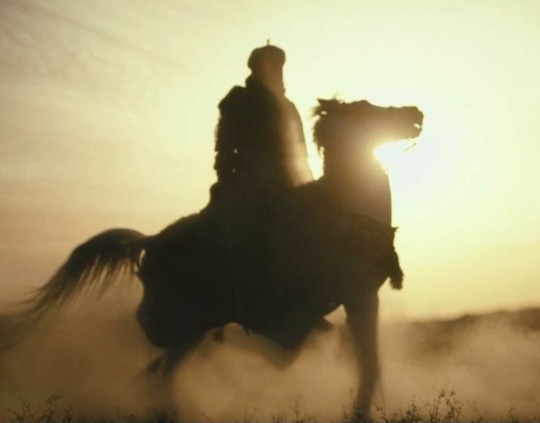
This is what I think the portraits look like:

Notice that this is the earrings Salauddin gifted Y/n when she was in the market with him:
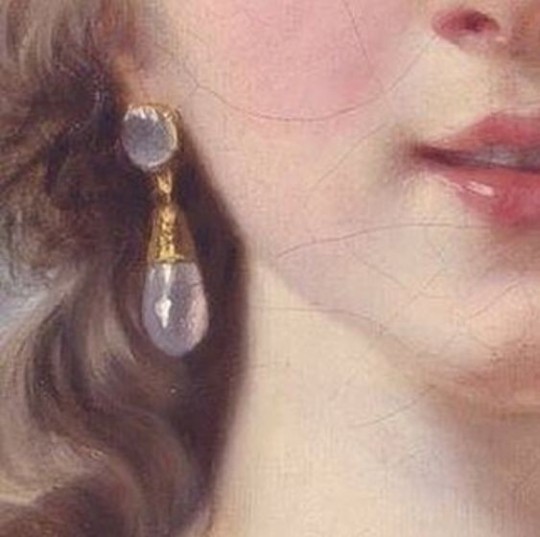
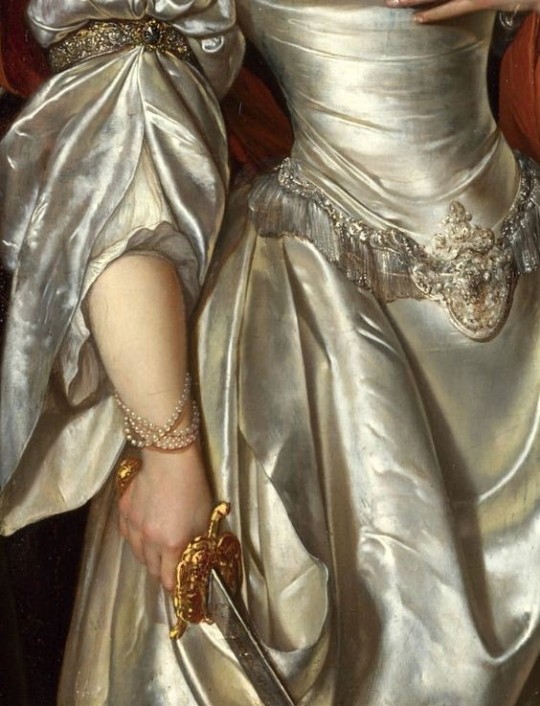

How Baldwin's been:

#yandere baldwin#yandere Salauddin#king baldwin x reader#baldwin#baldwin x reader#king baldwin iv#king baldwin x you#Salauddin#Salauddin x reader#time traveller au#yandere x reader#yandere x#yandere x you#male yandere
456 notes
·
View notes
Text
dhul hijjah - a second chance after ramadan ♡
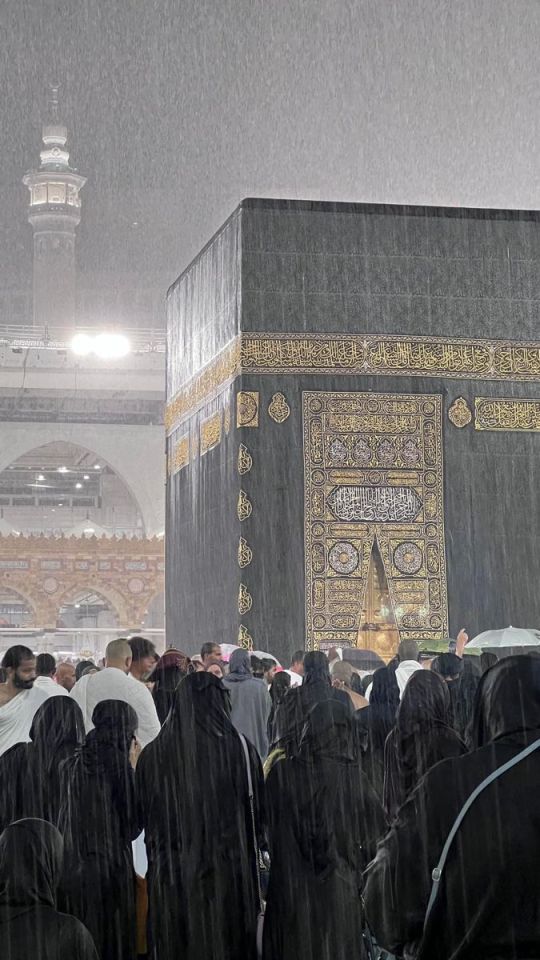
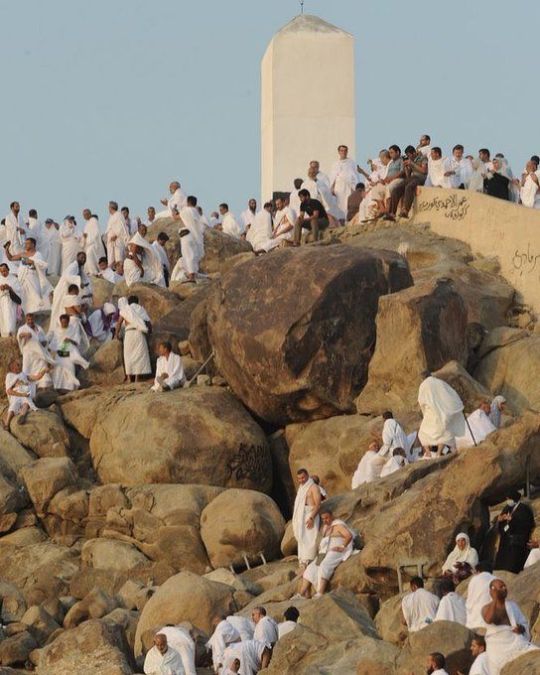
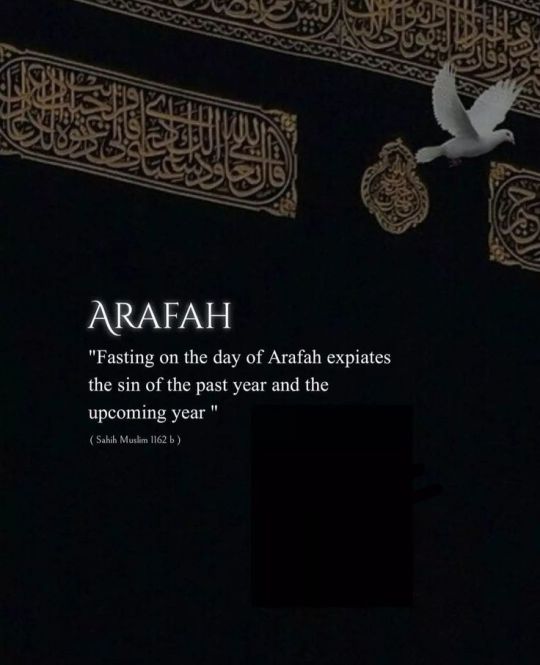
what is dhul hijjah?
meaning 'the month of the pilgrimage' as many muslims go on hajj in this time, dhul hijjah is the twelfth and final month of the islamic year. the first ten days of this month are the best days of the entire year. yes - even better than ramadan:
it was narrated by Ibn Abbas that the Prophet ﷺ said: “There are no days during which righteous deeds are more beloved to Allah than these days,” meaning the (first) ten days of Dhul- Hijjah" - Sunan Ibn Majah 1727
these ten days encompass the day of Arafah, Hajj, and Eid ul-Adha
this month, we remember prophet Ibrahim (as) and how he was told by Allah to sacrifice his son, Hadrat Ismail (as). he took hadrat Ismail (as) on top of mount Arafat for the sacrifice, and just as he was about to sacrifice Ismail (as), Allah told him to stop as He was only testing him to see if he was truly obedient and willing to sacrifice everything for Allah's sake. the 9th day of dhul hijjah is the day of Arafah, commemorating this event.
we also remember how Allah told Ibrahim (as) to leave Ismail (as) and his wife, Hadrat Hajar, in a desert - which, today, is present day makkah.
this month is therefore about obedience, surrender and sacrifice for Allah سُبْحَٰنَهُۥ وَتَعَٰلَىٰ.
depending on the sighting of the moon, dhul hijjah is expected to begin friday 7th june!
what to do in these first ten days?
even if you're not going for hajj, you should use these blessed days for extra righteous deeds and worship, especially on the day of arafah - the 9th day (which falls on 16th june this year, Insha'Allah) - the day before eid.
FASTING
it is a sunnah to fast the first 9 days of dhul hijjah. if you won't fast all 9 days, then it's best to prioritise the 9th day, the day of Arafah. this is because the prophet ﷺ said: “Fasting on the Day of ‘Arafah expiates for the sins of the year before and the year after.” (Sunan Ibn Majah 1730) however, unless you're going for hajj and you're actually at Afarah, then you cannot as it's forbidden to fast while on the mountain.
DHIKR
it's extremely important to increase your dhikr in this time. recite the tasbeeh, tahmeed, takbeer and tahleel often: tasbeeh - subhanallah (Holy is Allah) tahmeed - alhamdulillah (all praise belongs to Allah) takbeer - Allah Akbar (Allah is the Greatest) tahleel - laa ilaha ill-Allah (there is no God except Allah) Allah said “remembrance of Allah indeed is the greatest virtue” (29:46) - it brings you closer to Him, you feel more certain in His powers that He can remove any hardship which makes the heart feel less anxious, Allah becomes your Friend, you'll become successful (remember Allah often so you may prosper” (8:46), it cleans your heart, it protects you from harm, Allah becomes pleased with you. it truly is the greatest virtue.
also recite istighfar (astagfirullah) and repent for your sins
the best dua to recite on the day of Arafah itself is:
laa ilaaha ill-allaahu, waḥdahu laa shareeka lah, lahul-mulku wa lahul-ḥamdu, wa huwa ‛alaa kulli shay’in qadeer - (None has the right to be worshipped except Allah, alone, without partner. To Him belongs sovereignty and all praise and He is over all things omnipotent)
OTHER INCREASED ACTS OF WORSHIP
do extra voluntary acts of worship (nawafil, sunnah prayers, duha prayers)
read a lot of Qur'an
listen to the Qur'an more
send many, many salutations to the Prophet ﷺ (durood sharif!)
practice gratitude. what are you thankful for?
pray tahajjud
give sadaqah / donate to a charity. make sacrifices!
be kind!
read translation and commentary of surahs
listen to islamic podcasts/read islamic books to increase your knowledge
memorise a surah
talk to Allah!!!! pray!!!!
try and increase your acts of worship throughout the 9 days and especially on the 9th day, the day of arafah, which is the day before eid! (16th june Insha'Allah, depending on where you are in the world)
10th day - eid ul adha
on the tenth day of dhul hijjah (eid), our beloved Prophet ﷺ used to give Qurbani (a sacrifice) every year to remember Ibrahim (as) almost sacrificing his son for Allah سُبْحَٰنَهُۥ وَتَعَٰلَىٰ's sake. muslims sacrifice animals all over the world to follow this sunnah, and donating qurbani is encouraged for every Muslim who is financially able to do so (this can be done online)

may Allah سُبْحَٰنَهُۥ وَتَعَٰلَىٰ make it easy for us to utilise these blessed and best 10 days to the best of our abilities, forgive us of our sins, draw us ever nearer to Him and allow us to become His best friends, Allahumma Ameen ♡
#islam#dhul hijjah#arafah#muslim#religion#sabrgirl#ramadan#allah#quran#prayers#islamic#muslims#arafat#jummah
180 notes
·
View notes
Text
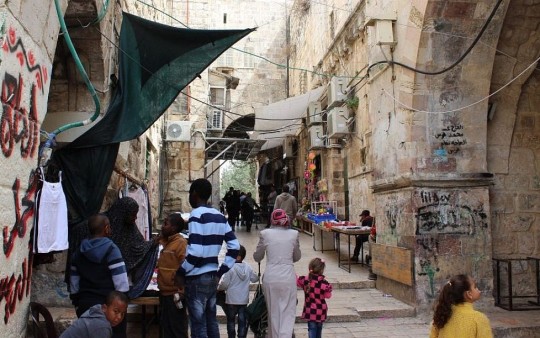
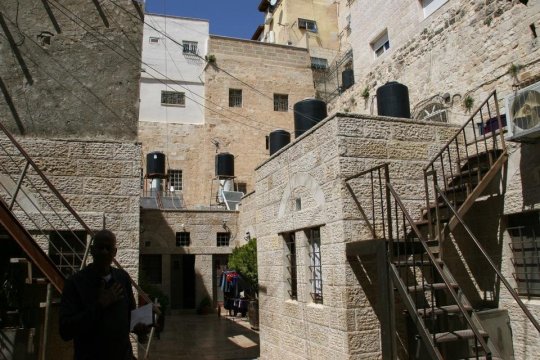
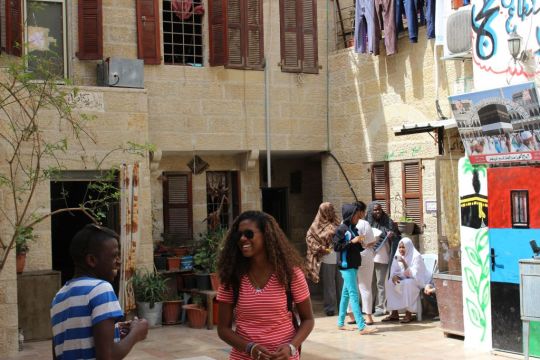
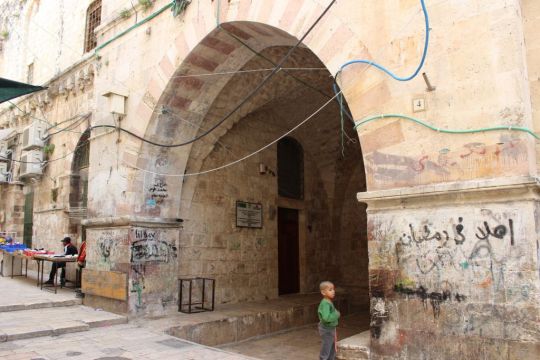
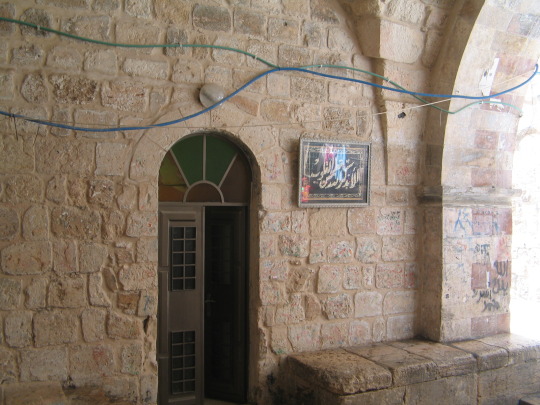
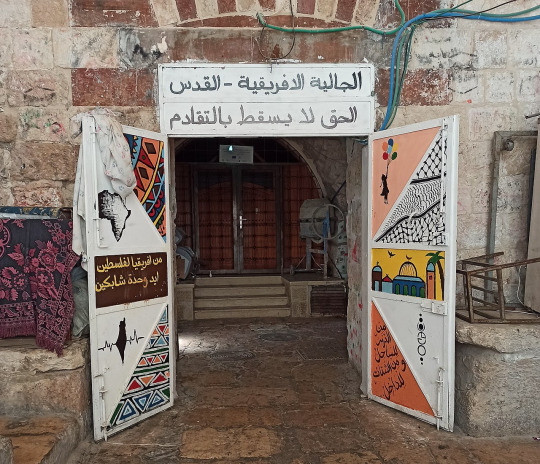
pictures from the old city of jerusalem's "african quarter", which comprises of ribat al-mansuri and ribat al-basiri. mamluks built the compounds in the late 13th century to house muslim pilgrims and the poor. ottomans used them as prisons, and the british closed the prisons when they occupied jerusalem in 1917. the ribats then came under the ownership of the islamic waqf, and were leased to the local afro-palestinian community.
afro-palestinians have an array of origins. like some other diaspora communities in palestine, some came through pilgrimage - al-aqsa was on their hajj path, and while many would visit to pray there, some decided to settle in jerusalem. there are also some who came to palestine enslaved or conscripted, most recently to ottomans. some came during the time of the british mandate, many as conscripted laborers to the british. afro-palestinians who can trace their ancestry do so to nigeria, chad, senegal, or sudan.
jerusalemite afro-palestinians were employed to guard al-aqsa throughout the ottoman period. during the 1948 palestine war, some joined the arab liberation army and fought with fellow palestinians to defend al-aqsa and their presence in jerusalem. the position of guards has been taken by occupation soldiers since the 1967 war, after which a quarter of the afro-palestinian population became refugees in surrounding countries.
jerusalem's afro-palestinian community still live in the compounds today, which also house the local african community society. (the door in the last picture is theirs.) afro-palestinians as a whole face the same legal, social, and economic restrictions and maltreatment as other palestinians, compounded with the same anti-black racism from israeli government and police which ethiopian jews and eritrean asylum seekers face, which result in a form of "passport racism" unique to them.
#palestine#black diaspora#architecture#muslim#diasporic palestine#my posts#see image description on 6th pic for translation#also worth mentioning that all four of the 'origin' countries are majority-muslim or had large muslim communities in case u didnt know#(though i wouldn’t doubt it if some nigerian or sudanese-palestinians came in the mandate era)#i feel like most of this blog's main demographic may know about sudan but maybe not the other three#there’s other black populations in pretty much every other me country who came for similar reasons#though pilgrimage is something really unique to palestine#and i’d guess also maybe modern day saudi arabia#though there’s large armenian communities in lebanon and syria who were established bc of pilgrimage to palestine
483 notes
·
View notes
Note
I am Muslim and I would like to talk about my religion in Spanish. I specifically want to look at talking about the belief, daily prayer, celebrations (Ramadan/etc), and the hijab/etc. There is a Muslim creator I watch (smahan.j) that I would love to understand if that helps get an idea of what I am looking for.
Thank you for helping in anyway you can!
The easiest way would be to look at Spanish wikipedia entries on Islam since I'm not familiar with all of the terminology and holidays but I'll share what I know:
musulmán, musulmana = muslim
el islam = Islam
la mezquita = mosque
sagrado/a = sacred, holy
el Corán = Quran
Alá = Allah
Dios = God
Mahoma = Mohammad
(la) Meca = Mecca
Jerusalén = Jerusalem
la peregrinación = pilgrimage [I've seen la peregrinación a la Meca literally "pilgrimage to Mecca" for the "hajj", also el haj and el hach]
peregrino/a = pilgrim
la yihad = jihad
el sufismo = Sufism el/la sufí = Sufi
el sunismo = Sunnism el/la sunita = Sunni, Sunnite
el chiismo = Shiism el/la chiíta = Shiite
el azaque / el zakat = Zakat/giving to charity
la limosna = alms, giving to charity [this is the same word that Christians use, so it's used for all religions that give alms or money to the poor; la limosna is sometimes understood as "charitable donation"]
el donativo = donation
la caridad = charity
rezar = to pray orar = to pray [they're usually synonymous; literally orar is related to "to speak", and rezar is from "to recite" - so sometimes people use rezar with specific prayers, but it's very similar]
la oración = prayer
la plegaria = prayer [often more in the sense of "supplication" or "request"; it's a prayer that comes more from a place of sadness or needing something]
ayunar = to fast, to go without eating
el ayuno = (a) fast
Ramadán = Ramadan
el profeta = prophet [the female form is la profetisa which is like "prophetess"]
la fe = faith
la creencia = belief
la adoración = worship el adorador, la adoradora = worshiper
el deber = duty [or "chore", literally it's "something owed" or "something that must be done"]
el imán = imam
el ��rabe = Arabic
la fiesta = party / holiday
el Eid / el Eíd / el Aíd = Eid [depends where you are, they try to get the pronunciation right, but otherwise they call it la fiesta (de algo) meaning "holiday" and kind of translate the particular Eid]
el hijab, el hiyab = hijab [the other word used is sometimes el velo which is "veil" or "headscarf"]
Additionally for the hijab you can sometimes see la pañoleta which is also understood as "headscarf" or "shawl" - it's related to another possible word for the hijab which is el pañuelo which is literally "kerchief" [commonly it's "handkerchief" like some people use it for napkin or a cloth you keep in your pocket, but it meant a piece of cloth in any case]
Also sometimes people do call it el velo "veil", or if they're being specific el velo islámico which is "Islamic veil" as opposed to a wedding veil, a nun's habit, or the headscarves people would wear who are Jewish or Christian etc., for example Mary is commonly depicted wearing el velo but you wouldn't translate that as "hijab" if that makes sense
Just an FYI - el imán does mean "imam", but it also means "magnet" in Spanish. They're two separate etymologies, but one word
21 notes
·
View notes
Note
One of my friends is going on her Hajj over Christmas winter break. And I'm happy and excited for her. Really, I am! She'll get to see and do and experience so many important things, and I'm super happy about that! But I was supposed to go to Israel during the winter. I was supposed to meet family I'd never heard of, walk the land my ancestors walked so many centuries ago, pray at the same places they'd prayed at...all things my friend will get to do now. And I'm trying really hard not to be bitter, but it's just so hard.
.
30 notes
·
View notes
Text
1st Day of Hajj Complete Step by Step Hajj Guide the rituals of the Haj pilgrimage to Makkah #haj
#hajj #hajj2024 #macca #madinah #kabah #muslim #umrah #islam #hajjjourney #blessed #pilgrimage # #الحج #مكة #المدينة #كعبة #مسلم #عمرة #إسلام #رحلةحج #مبارك #مكرمة #مناسكالحج #مشعر #عرفة #مزدلفة #مزدلفه #مشعر_عرفة #منا #hajjvlogs #hajjguide #learnhajj #hajjtips #hajjpreparation #hajjexperience #prayforhajj #hajjrituals #hajjmubarak #hajjday #hajjaccepted #alhamdulillah #duasforhajj #makkah…
View On WordPress
#alhamdulillah#blessed#duas for hajj#explore hajj#hajj#hajj 2024#hajj day#hajj experience#hajj for beginners#hajj guide#hajj journey#hajj mabroor#hajj moments#hajj mubarak#hajj preparation#hajj rituals#hajj tips#hajj vibes#hajj vlogs#hajjaccepted#islam#kabah#learn hajj#macca#madinah#makkah#muslim umrah#pilgrimage#pray for hajj#types of hajj
0 notes
Text
متى يجب الحج على المرأة #hajj #hajj2024 #macca #madinah #kabah #muslim #umrah #islam #hajjjourney
#متى #يجب #الحج #على #المرأة #hajj #hajj2024 #macca #madinah #kabah #muslim #umrah #islam #hajjjourney #حج, #حج2024, #مكة, #المدينة, #كعبة, #مسلم, #عمرة, #إسلام, #رحلةحج, #مبارك, #غفرانالذنوب, #اركانالحج, #نسكالحج, #طواف, #سعي, #وقوفعرفة, #مزدلفة, #منى, #رميالجمرة, #تحلقالحاج, #تقصير, #تلبية, #لبيكاللهملبيك, #الحجمبشربالجنة, #الحجاركانوواجبات, #الحجمستحبات, #الحجاتباعالهدي, #الحجاروعرحلة,…

View On WordPress
#alhamdulillah#blessed#duas for hajj#explore#hajj#hajj 2024#hajj day#hajj experience#hajj guide#hajj journey#hajj mubarak#hajj preparation#hajj rituals#hajj tips#hajj vlogs#hajjaccepted#islam#kabah#learn hajj#macca#madinah#Makkah#muslim umrah#pilgrimage#pray for hajj#إسلام#الحج#المدينة#رحلة_حج#عرفات
0 notes
Text


عَنْ مُعَاذِ بْنِ جَبَلٍ، قَالَ كُنْتُ مَعَ النَّبِيِّ صلى الله عليه وسلم فِي سَفَرٍ فَأَصْبَحْتُ يَوْمًا قَرِيبًا مِنْهُ وَنَحْنُ نَسِيرُ فَقُلْتُ يَا رَسُولَ اللَّهِ أَخْبِرْنِي بِعَمَلٍ يُدْخِلُنِي الْجَنَّةَ وَيُبَاعِدُنِي مِنَ النَّارِ . قَالَ " لَقَدْ سَأَلْتَنِي عَنْ عَظِيمٍ وَإِنَّهُ لَيَسِيرٌ عَلَى مَنْ يَسَّرَهُ اللَّهُ عَلَيْهِ تَعْبُدُ اللَّهَ وَلاَ تُشْرِكُ بِهِ شَيْئًا وَتُقِيمُ الصَّلاَةَ وَتُؤْتِي الزَّكَاةَ وَتَصُومُ رَمَضَانَ وَتَحُجُّ الْبَيْتَ " . ثُمَّ قَالَ " أَلاَ أَدُلُّكَ عَلَى أَبْوَابِ الْخَيْرِ الصَّوْمُ جُنَّةٌ وَالصَّدَقَةُ تُطْفِئُ الْخَطِيئَةَ كَمَا يُطْفِئُ الْمَاءُ النَّارَ وَصَلاَةُ الرَّجُلِ مِنْ جَوْفِ اللَّيْلِ " . قَالَ ثُمَّ تَلاََ: ( تَتَجَافَى جُنُوبُهُمْ عَنِ الْمَضَاجِعِ ) حَتَّى بَلَغَ: (يَعْمَلُونَ) ثُمَّ قَالَ " أَلاَ أُخْبِرُكَ بِرَأْسِ الأَمْرِ كُلِّهِ وَعَمُودِهِ وَذِرْوَةِ سَنَامِهِ " . قُلْتُ بَلَى يَا رَسُولَ اللَّهِ . قَالَ " رَأْسُ الأَمْرِ الإِسْلاَمُ وَعَمُودُهُ الصَّلاَةُ وَذِرْوَةُ سَنَامِهِ الْجِهَادُ " . ثُمَّ قَالَ " أَلاَ أُخْبِرُكَ بِمَلاَكِ ذَلِكَ كُلِّهِ " . قُلْتُ بَلَى يَا نَبِيَّ اللَّهِ قَالَ فَأَخَذَ بِلِسَانِهِ قَالَ " كُفَّ عَلَيْكَ هَذَا " . فَقُلْتُ يَا نَبِيَّ اللَّهِ وَإِنَّا لَمُؤَاخَذُونَ بِمَا نَتَكَلَّمُ بِهِ فَقَالَ " ثَكِلَتْكَ أُمُّكَ يَا مُعَاذُ وَهَلْ يَكُبُّ النَّاسَ فِي النَّارِ عَلَى وُجُوهِهِمْ أَوْ عَلَى مَنَاخِرِهِمْ إِلاَّ حَصَائِدُ أَلْسِنَتِهِمْ ". حديث صحيح -جامع الترمذي وابن ماجه ٢٦١٦ - ٣٩٧٣
Narrated Mu'adh bin Jabal: "I accompanied the Prophet (peace be upon him) on a journey. One day I was near him while we were moving so I said: 'O Messenger of Allah! Inform me about an action by which I will be admitted into Paradise, and which will keep me far from the Fire.' He said: 'You have asked me about something great, but it is easy for whomever Allah makes it easy: Worship Allah and do not associate any partners with Him, establish the Salat, give the Zakat, fast Ramadan and perform Hajj to the House.' Then he said: 'Shall I not guide you to the doors of good? Fasting is a shield, and charity extinguishes sins like water extinguishes fire - and a man's praying in depths of the night.'" He said: "Then he recited: 'Their sides forsake their beds to call upon their Lord.' Until he reached: 'What they used to do.' [32:16-17] Then he said: 'Shall I not inform you about the head of the entire matter, and its pillar, and its hump?' I said: 'Of course O Messenger of Allah! He said: 'The head of the matter is Islam, and its pillar is the Salat, and its hump is Jihad.' Then he said: 'Shall I not inform you about what governs all of that?' I said: 'Of course O Messenger of Allah!'" He (peace be upon him) said: "So he grabbed his tongue. He said 'Restrain this.' I said: 'O Prophet of Allah! Will we be taken to account for what we say?' He said: 'May your mother grieve your loss O Mu'adh! Are the people tossed into the Fire upon their faces, or upon their noses, except because of what their tongues have wrought'" Jami` at-Tirmidhi 2616 In-book reference : Book 40, Hadith 11 - Sunan Ibn Majah 3973 In-book reference : Book 36, Hadith 48

Hadith Translation/ Explanation : English French Spanish Turkish Urdu Indonesian Bosnian Russian Bengali Chinese Persian Tagalog Indian Sinhalese Kurdish Hausa Portuguese: https://hadeethenc.com/en/browse/hadith/4303
#حديث#أحاديث نبوية#رسول الله صلى الله عليه وسلم#صلى الله عليه وسلم#اللهم صل وسلم على نبينا محمد#الرسول صلى الله عليه وسلم#محمد صلى الله عليه وسلم#الإسلام#أركان الإسلام#الصلاة#الصدقة#قيام الليل#التهجد#مسلم#hadith#sunnah#ahadeth#islam#hadeth#muslim#islamic#prophet muhammad#prophet mohammed#prophet muhammed pbuh#prayer#faith#charity#tahajjud#ummah#muslim ummah
83 notes
·
View notes
Note
Hiiii
Since you’re like the only Muslim person I know who can respond easily/quickly, do you have any tips on how to write a Muslim character (for headcanons) or just any basic traditions
Btw out of curiosity where are you from :0
this is about sunni Muslims cause that's what I am (its also the largest group being around 87 to 90% of Muslims)
I suggest going to the nearest mosque and asking questions there, since I am still learning myself. Quick thing is that you would need to wear clothes that cover ya completely (like up to the ankles and neck) and maybe a hat that covers yalls hair completely too since Muslims women wear hajabs and I don't think you have one but idk if you would wear one or not. (Idk how to word this)
Also the sheikh/shaykhah is the one that knows the most about Islam, usually you can't tell them apart from others, but you can ask someone there if they know who they are.
Imams leads prayers either at home or at mosques usually it's the sheikh if at a mosque but not always.
I suggest going around prayer times cause they don't stay in mosques forever. My mosque starts prayer ten minutes after adhan (serves as general call to prayer) it can be mixed up with Iqama (calls those who are inside the mosque to get into a line: prayer is going to start after this is done)
also my cousin gave me this book called the sacred path to Islam by sincere seeker while writing this since she and my ma are going to Costco (she came over to pray and ended up being swarmed with questions)
it should be useful if you can't go over to a mosque.
Halal - not forbidden by Islamic law
Haram - forbidden by Islamic law
Allah is our God, he has 99 names (but for the sake of this i am just going to say Allah)
Hadiths is what prophet Muhammed PBUH said, we follow the Quran first and hadiths second.
There are five pillars: shahada, salat, zakat, sawm, and hajj
Shahada: declaration of faith, "I bear witness that there is no god but God, and I bear witness that Muhammad is the Messenger of God." Salat - the mandatory five prayers of Islam, Salah means prayer. Zakat - giving alms to the poor and needy. Someone's wealth isn't pure until they share it with others
Sawm - fasting during the holy month of Ramadan. Good deeds are increased, but so are bad deeds
Hajj - pilgrimage to mecca, every Muslim is supposed to go here once in a lifetime, that is if they are physically, mentally, or financially able to.
also was born in America, but am Jordanian (ma from jordan)
my dad's side of the family I am not really sure about but he's Pakistani and my grandma (ma's side) was born in Egypt but not sure about my great grandmother
7 notes
·
View notes
Text
HIGHLY REWARDING GOOD DEEDS ✨
1️⃣ Would You Like To Be Close To Allah?
The Messenger of Allah (ﷺ) said:
"The closest that a person is to his Lord is when he is prostrating, so say a great deal of supplication (in this state)."
📚: Sahih Muslim 482 (1083)
2️⃣ Would You Like The Reward of Hajj?
The Prophet Muhammad (ﷺ) said:
"Perform Umrah in the month of Ramadan as it is equivalent to Hajj or Hajj with me (in reward)."
📚: Sahih Bukhari 1863
3️⃣ Would You Like A Home In Paradise?
The Messenger of Allah (ﷺ) said:
"Whoever builds a mosque in which the Name of Allah is mentioned, Allah will build a house for him in Paradise."
📚: Sunan Ibn Majah 735 | Sahih
4️⃣ Would You Like To Achieve The Pleasure of Allah (سبحانه و تعالى)?
The Prophet Muhammad (ﷺ) said:
"Allah is pleased with His servant who eats some food and then praises Him for it (says Alhamdulillah - Praise be to Allah) or who drinks some drink and then praises Him for it (says Alhamdulillah)."
📚: Sahih Muslim 2734 (6932)
5️⃣ Would You Like Your Duaa To Be Answered?
The Prophet Muhammad (ﷺ) said:
"The supplication made between the adhan and the iqamah is not rejected."
📚: Sunan Abi Dawud 521 | Sahih
6️⃣ Would You Like The Reward For Fasting A Complete Month Written For You?
The Messenger of Allah (ﷺ) said:
"Fasting for three days during the month is like fasting, the whole of the month."
📚: Sahih Muslim 1159 (2736)
7️⃣ Would You Like To Have Good Deeds The Size of Mountains?
Allah's Messenger (ﷺ) said:
"(A believer) who accompanies the funeral procession of a Muslim out of sincere faith and hoping to attain Allah's reward and remains with it till the funeral prayer is offered and the burial ceremonies are over, he will return with a reward of two Qirats. Each Qirat is like the size of the (Mount) Uhud. He who offers the funeral prayer only and returns before the burial will return with the reward of one Qirat only."
📚: Sahih Bukhari 47
8️⃣ Would You Like To Accompany The Prophet Muhammad (ﷺ) In Paradise?
Allah's Messenger (ﷺ) said:
"I and the one who looks after an orphan will be like this in Paradise." showing his middle and index fingers and separating them.
📚: Sahih Bukhari 5304
9️⃣ Would You Like That Your Actions Continue After Your Death?
The Messenger of Allah (ﷺ) said:
"When a person dies, his deeds are cut off except for three: Continuing charity, knowledge that others benefited from, and a righteous son (child) who supplicates for him."
📚: Jami at-Tirmidhi 1376 | Sahih
1️⃣0️⃣ Would You Like A Gem From The Gems of Paradise?
The Prophet Muhammad (ﷺ) said:
"Shall I not tell you of a treasure which is one of the treasures of Paradise?"
He (ﷺ) said: "La hawla wa la quwwata illa billah (There is no power and no strength except with Allah)."
📚: Sunan Ibn Majah 3825 | Sahih
1️⃣1️⃣ Would You Like The Reward of Praying The Whole Night?
The Messenger of Allah (ﷺ) said:
"Whoever prays Isha in congregation, it is as if he spent half the night in prayer, and whoever prays Subh (Fajr) in congregation, it is as if he spent the whole night in prayer."
📚: Sahih Muslim 656 (1491)
1️⃣2️⃣ Would You Like The Reward of Reciting One-Third of The Qur’an?
The Prophet (ﷺ) said to his companions: "Is it difficult for any of you to recite one-third of the Qur'an in one night?"
This suggestion was difficult for them so they said: "Who among us has the power to do so, O Allah's Messenger (ﷺ)?"
Allah’s Messenger (ﷺ) replied: "Allah (the) One, the Self-Sufficient Master, Whom all creatures need.' (Surat Al-Ikhlas 112:1-4) is equal to one-third of the Qur'an."
📚: Sahih Bukhari 5015
1️⃣3️⃣ Would You Like That Your Scale Is Very Heavy With Reward?
The Prophet Muhammad (ﷺ) said:
"(The following are) two words (sentences or utterances) that are very easy for the tongue to say, and very heavy in the balance (of reward), and most beloved to the Gracious Almighty (Allah):
« سُبْحَانَ اللَّهِ وَبِحَمْدِهِ، سُبْحَانَ اللَّهِ الْعَظِيمِ »
(Glory and praise is to Allah, Glory is to Allah The Most Great)."
📚: Sahih Bukhari 6682
1️⃣4️⃣ Would You Like That Allah Increases Your Provisions?
The Prophet Muhammad (ﷺ) said:
"Whoever would like his rizq (provision) to be increased and his life to be extended, should uphold the ties of kinship."
📚: Sahih Bukhari 5986
1️⃣5️⃣ Would You Like To Have A House In Paradise?
Prophet Muhammad (ﷺ) said:
"Whoever is regular with twelve Rak'ah of Sunnah (prayer), Allah will build a house for him in Paradise.
Four Rak'ah before Zuhr (and) two Rak'ah after it, two Rak'ah after Maghrib, two Rak'ah after Isha and two Rak'ah before Fajr."
📚: Jami at-Tirmidhi 414 | Hasan
1️⃣6️⃣ Would You Like That Allah Protects You?
The Prophet Muhammad (ﷺ) said:
"Whoever prays the Fajr prayer then he is under the protection of Allah.."
📚: Sahih Muslim 657 (1494)
1️⃣7️⃣ Would You Like Allah To Send Salat (Blessings) Upon You?
The Prophet Muhammad (ﷺ) said:
"Whoever sends Salah (Graces, Honours, Blessings and Mercy, etc.) upon me once, Allah will send Salah upon him tenfold, and will erase ten sins from him, and will raise him ten degrees in status."
📚: Sunan an-Nasa'i 1298 | Sahih
1️⃣8️⃣ Would You Like Allah To Increase Your Honor And Raise Your Status?
The Prophet Muhammad (ﷺ) said:
"Charity does not decrease wealth, no one forgives another except that Allah increases his honour, and no one humbles himself for the sake of Allah except that Allah raises his status."
📚: Sahih Muslim 2588 (6592)
1️⃣9️⃣ Would You Like To Be Distant From The HellFire By Seventy Years?
The Prophet Muhammad (ﷺ) said:
"Whosoever observes fast for one day in Allah's Cause (to seek His good pleasure), Allah will keep his face away from the (Hell) Fire (a distance covered by a journey of) seventy years."
📚: Sahih Bukhari 2840
2️⃣0️⃣ Would You Like To Enter Paradise?
Allah's Messenger (ﷺ) said:
"Whoever offers the two cool prayers ('Asr and Fajr) will enter Paradise."
📚: Sahih Bukhari 574
61 notes
·
View notes
Text
Dhikr after every Fardh salah.

Dhikr after every Fardh salah.
Bismillah.
It is prescribed to remember Allah by glorifying Him, praising Him, magnifying Him and proclaiming His Oneness (by saying La ilaha illa Allah) following the obligatory prayers .
There are many ways of doing that, which have been narrated in the Sunnah.
1)The worshipper can glorify Allah thirty-three times (by saying “Subhan Allah”) after every prayer , praise Him (by saying “Al-hamdu Lillah”) thirty-three times, and magnify Him (by saying “Allahu akbar”) thirty-three times, and he may complete one hundred by saying: “La ilaha ill-Allah wahdahu la sharika lah, lahu’l-mulk wa lahu’l-hamd wa huwa ‘ala kulli shay-in qadir (There is no god worthy of worship except Allah Alone, with no partner or associate, His is the Dominion, to Him be praise, and He has power over all things). Thus the total number will be one hundred.
Ref: That is because of the report narrated by Muslim (597) ~ Abu Hurayrah (may Allah be pleased with him) from the Messenger of Allah (blessings and peace of Allah be upon him), who said: “Whoever glorifies Allah thirty-three times after every prayer , and praises Allah thirty-three times, and magnifies Allah thirty-three times, making ninety-nine, and completes it by saying, ‘There is no god but Allah Alone, with no partner or associate; His is the Dominion, to Him be praise, and He has power over all things,’ his sins will be forgiven even if they are like the foam of the sea."
In this wording, tasbih is repeated thirty-three times, then tahmid is repeated the same number of times, then takbir is repeated the same number of times.
Or it may be done by putting the phrases together: “Subhan Allah wa’l-hamdu Lillah wa Allahu akbar (Glory be to Allah, and praise be to Allah, and Allah is most great),” then repeating that thirty-three times.
Ref: Al-Bukhari (843) and Muslim (595) narrated~ Abu Hurayrah (may Allah be pleased with him) said: The poor came to the Prophet (blessings and peace of Allah be upon him) and said: The wealthy, by virtue of their wealth, have taken away the highest ranks and eternal bliss. They pray as we pray and they fast as we fast, but they have surplus wealth with which they do Hajj and ‘umrah, and they strive in jihad and give charity. He said: “Shall I not teach you something by means of which you may catch up with those who have gone ahead of you and none of those who come after you will catch up with you, and you will be the best of the people around you, except those who do what you do? Glorify Allah, magnify Him and praise Him thirty-three times following every prayer.”
We disagreed among ourselves. Some of us said: We should glorify Allah thirty-three times, and praise Him thirty-three times, and magnify Him thirty-four times. So I went back to him and asked.
And he said: “Say, ‘Subhan Allah wa’l-hamdu Lillah wa Allahu akbar (Glory be to Allah, and praise be to Allah, and Allah is most great)’ until you have said all of that thirty-three times.”
2) Glorifying Allah thirty-three times, praising Him thirty-three times and magnifying Him thirty-four times, so the total will be one hundred.
Ref: That is because of the report narrated by Muslim (596) ~ Kab ibnUjrah (may Allah be pleased with him) from the Messenger of Allah (blessings and peace of Allah be upon him), who said: “Dhikrs after the prayer, the one who says them or does them after each obligatory prayer will not be disappointed: thirty-three tasbihs, thirty-three tahmids and thirty-four takbirs.”
3)Glorifying Allah, praising Him, magnifying Him and proclaiming His Oneness (by saying La ilaha illa Allah) twenty-five times each, so that the total will be one hundred.
Ref: That is because of the report narrated by an-Nasai (1350) ~ Zayd ibn Thabit (may Allah be pleased with him), who said: They were instructed to glorify Allah following every prayer thirty-three times, and praise Him thirty-three times, and magnify Him thirty-four times. A man from among the Ansar had a dream in which someone came to him and it was said to him: Has the Messenger of Allah (blessings and peace of Allah be upon him) instructed you to glorify Allah following every prayer thirty-three times, and praise Him thirty-three times, and magnify Him thirty-four times? He said: Yes. He said: Make them twenty-five times, and include tahlil among them. When morning came, he went to the Prophet (blessings and peace of Allah be upon him) and told him about that, and he said: “Do them like that.” [This hadith was classed as sahih by al-Albani in Sahih an-Nasai.]
4)Glorifying Allah ten times, praising Him ten times, and magnifying Him ten times.
Ref: That is because of the report narrated by Abu Dawud (5065)~ ‘Abdullah ibn ‘Amr (may Allah be pleased with him), from the Prophet (blessings and peace of Allah be upon him) who said: “There are two deeds that a Muslim does not do regularly but he will enter Paradise. They are easy but those who do them are few; saying Subhan-Allah ten times after every prayer , and saying al-hamdu Lillah ten times, and saying Allahu akbar ten times. That makes one hundred and fifty [in a day] on the tongue and one thousand and five hundred in the Balance.
And saying Allahu akbar thirty-four times when going to bed, and saying al-hamdu Lillah thirty-three times, and Subhan-Allah thirty-three times. That is one hundred on the tongue and one thousand in the Balance.”
And I saw the Messenger of Allah (blessings and peace of Allah be upon him) counting them on his fingers. They said: O Messenger of Allah, how is it that they are easy but few people do them? He said: “He – meaning the shaytan – comes to one of you when he is in his bed and makes him fall asleep before he can say them, and he comes to him when he is praying and reminds him of some need before he can say them.”
[Classed as sahih by al-Hafiz Ibn Hajar in Takhrij al- Adhkar (2/267)] [Classed as sahih by al-Albani in al-Kalim at-Tayyib (113).]
These are a number of the sound ways [of reciting dhikr] that have been narrated in detail. The best is to vary between them, saying one sometimes and another at other times.
Shaykh Muhammad ibn ‘Uthaymin (may Allah have mercy on him) said: “With regard to reciting tasbih following the prayers, four ways have been narrated:
1)Saying “Subhan Allah” ten times, “Al-hamdu Lillah” ten times and “Allahu akbar” ten times.
2)Saying “Subhan Allah wa’l-hamdu Lillah wa Allahu akbar” thirty-three times. Thus the total will be ninety-nine, and one may complete that by saying, “La ilaha ill-Allah wahdahu la sharika lah, lahu’l-mulk wa lahu’l-hamd wa huwa ‘ala kulli shay-in qadir (There is no god but Allah Alone, with no partner or associate, His is the Dominion, to Him be praise, and He has power over all things).”
3)Saying “Subhan Allah” thirty-three times, “Al-hamdu Lillah” thirty-three times and “Allahu akbar” thirty-four times.
4)Saying “Subhan Allah wa’l-hamdu Lillah wa la ilaha illa Allah wa Allahu akbar” twenty-five times. Thus the total will be one hundred times."
Ref: Sharh Manzumah Usul al-Fiqh wa Qawa‘idihi p. 176-177.
May Allah accept it from you and us.
#dhikr#salah#namaz#Fardh#Fardh salah#infographic#islamic infographic#islam#quran#hadith#sunnah#dawah#muslim#salaf#reminder benefit believers#reminder#allahswt#subhanallah#alhamdulillah#allahuakbar
13 notes
·
View notes
Text
Waria
The waria community is an indigenous trans group that has held a centuries-old position in Indonesian society. In South Sulawesi, Warias are traditionally recognised as a social group, have been integral to Indonesian society for far longer than homosexuals.





The term "waria" is a combination of the Indonesian words "wanita" (woman) and "pria" (man). Waria are male who identify as women and express their gender identity through their mannerisms, clothing, and appearance. While some identify fully as women, others may not. Not all warias undergo sex reassignment surgery, but many choose to have breast implants and undergo hormone therapy.


The majority of warias are Muslim. Many pray at mosques and do hajj in male clothing due to strict gender norms. In 2008, Pondok Pesantren Waria al-Fatah, an Islamic boarding school, was established to offer safe spaces for prayer, Quranic lessons, and gatherings. Unfortunately, the madrasa was forced to close down after receiving threats from Islamists. Warias frequently face harassment from hardline Islamic groups, who exploit increasing sectarian tensions in the region to promote their interpretations of Sharia law.
14 notes
·
View notes